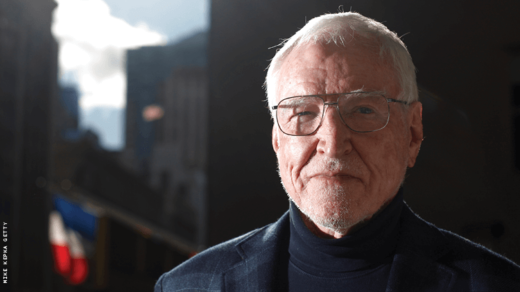Reflections of a Trans Minister on What’s Happening in Nashville
Author: Advocate Contributors

By Roberto Che Espinoza
In the recent weeks, I’ve grown distressed from the political and gun violence that has erupted in my hometown of Nashville. As a Christian minister, I am keenly aware of my community’s need for spaces of care and healing.
On Thursday, April 6, the Tennessee House of Representatives voted on a resolution to expel Representative Justin Jones, Representative Justin Pearson, and Representative Gloria Johnson – also known as the “Tennessee Three.” As a result, Rep. Jones and Rep. Pearson, two young Black representatives were expelled from their elected seats — leaving about 131,000 Tennesseans without elected representation. Rep. Gloria Johson commented to a reporter who asked why she wasn’t expelled and explained that it might have something to do with her being treated differently as a white woman. Their offense? Bypassing procedure to uplift the voices of the kids who were protesting at the Tennessee State Capitol and desperately calling for sensible gun laws.
This action by the Tennessee Republican supermajority blatantly silences the voices of young people yearning for change. At worst, it emboldens a spiteful culture of a majority restricting the elected representation of a minority. As a Tennessean, I fear that this opens the door to censorship, fascism, and state autocracy. Representative democracy can only work if we allow it to provide a platform for the voiceless — including youth who are often ignored due to their ineligibility to vote. Tennessee state officials are not allowing democracy to work, and our community deserves better.
It’s no surprise that youth-led protests against gun violence occur shortly after a deadly school shooting in Nashville at Covenant Christian School. On March 27, a former student senselessly killed three children and three adults. What unfolded here is part of a wider pattern of gun violence motivated by hate. We find our society plagued by indifference to the rising number of victims. When will it be too much? And instead of enacting impactful solutions to prevent more mass shootings, our leaders are further perpetuating a culture of hate. Hate that weaponizes the assumed gender of the shooter to cultivate anti-LGBTQ sentiment. Furthermore, it led to LGBTQ people receiving death threats for simply expressing their gender freely in public. This comes on the cusp of lawmakers passing a series of laws targeting trans youth, people seeking gender-affirming care, and drag performances.
How do we put an end to this cycle of political violence? The pathway forward, I think, is healing through nonviolence. We need to learn how to be human with one another, again. We need to learn how to share our differences without turning to violent reactions or retaliation. We need another possible world where we embrace the complexities of our identities.
My faith teaches me to listen to people, even in their suffering. As German liberation theologian Dorothee Sölle taught me, “God is justice” and we are called to make this world a better place through love, kindness, and compassion. Sölle once wrote: “I believe in God who created the world not ready-made…but who desires the counter-arguments of the living and the alteration of every condition through our work, through our politics.” As people who can engage faith through action, we must get our hands dirty in addressing the wounds of the world and communities around us.
That is why, on the weekend after the Nashville shooting, a group of local clergy including myself organized a private evening of healing. We knew our community was hurting. This space directly provided healing services to members of faith, atheists, LGBTQ and young people alike. From counseling services to body work in the form of massage, yoga, music, meditation, and rituals, we led with nonviolence in every way. We welcomed people as their full selves. We comforted and fed them. We grieved together and divulged our worries to people who understood us.
Can you imagine a world built on more spaces like this? Where community care and healing triumph over violence. What we did here is unique and provides a foundation for how we can move forward together as a community. This is what makes me believe that there is hope for us in what feels like a hopeless world.
As my friend and colleague, Dr. Yara González-Justiniano, teaches me, hope is knowing that the reality of possibilities is not exhausted quite yet. We must continue to create conditions for another possible world. A world composed of ethical futures for all.
Dr. Roberto Che Espinoza is a transgender Latinx scholar and activist.
Views expressed in The Advocate’s opinion articles are those of the writers and do not necessarily represent the views of The Advocate or our parent company, equalpride.
From Your Site Articles
Original Article on The Advocate
Author: Advocate Contributors




